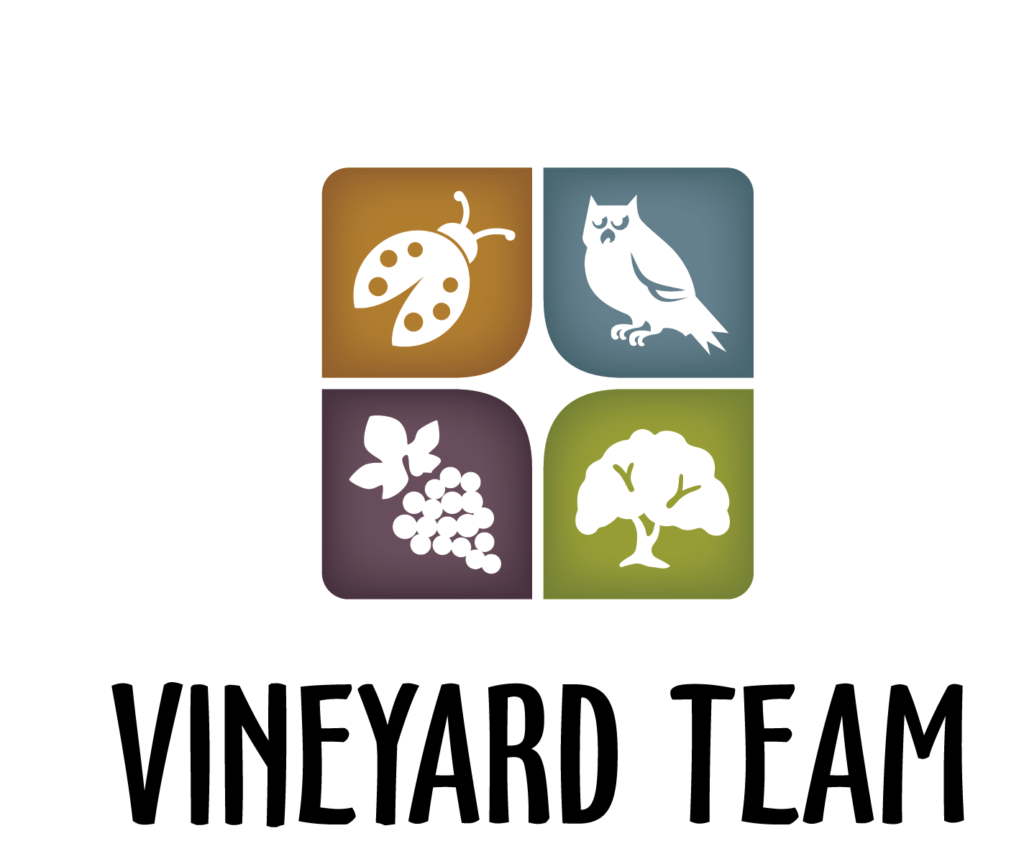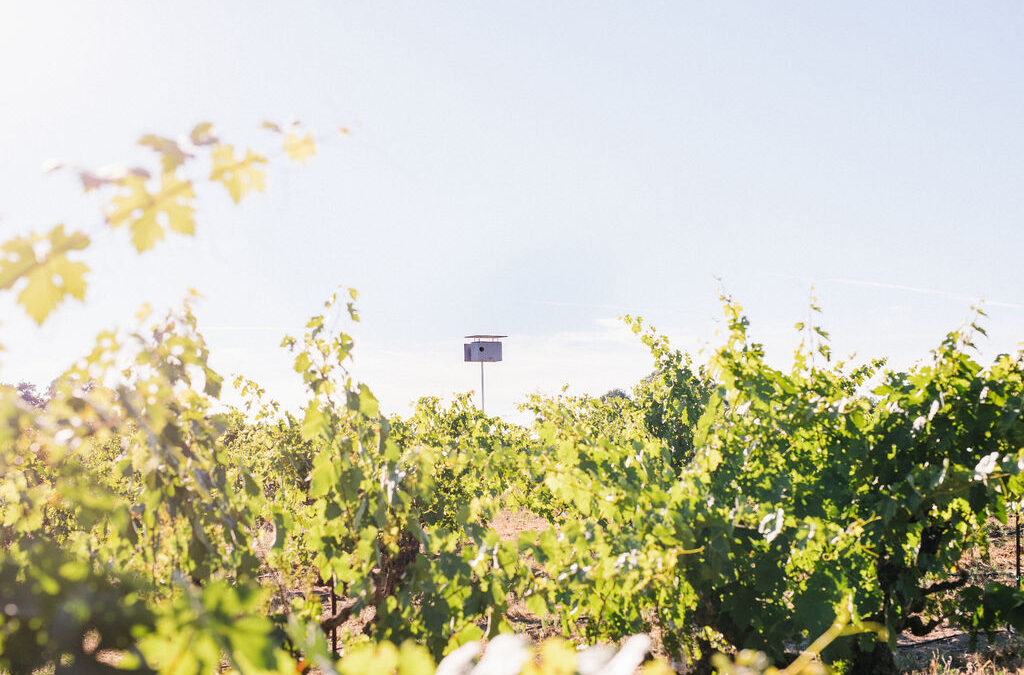MONDAY, DECEMBER 27, 2021. BY THE VINEYARD TEAM.
The Vineyard Team’s Sustainable Winegrowing podcast brings you the latest in science and research for the wine industry. This popular, on-the-go, sustainable farming educational resource provides in-depth technical information on topics like integrated pest management, fruit quality, water conservation, and nutrient management from experts like Dr. Marc Fuchs of Cornell University, Dr. Michelle Moyer of Washington State University, Cooperative Extension Specialists, veteran growers, and more. These podcasts will not only make you smarter, but will also help you increase efficiency, conserve resources, and produce better fruit.
As we close out 2021, let’s reflect on the TOP FIVE PODCASTS OF THE YEAR:
 110: How to Develop a New Vineyard Site
110: How to Develop a New Vineyard Site
Vineyard development begins with the soil. Steve Vierra, Director of Vineyard Operation at Derby Wine Estates and Certified Professional Soil Scientist, has developed many vineyards since the 1990s and always begins with a site evaluation to determine what is actually plantable. This includes a deep dive into all aspects of the prospective vineyard including climate, rain fall, aspect, slope, rootstock, soil types, and best varieties to create a self-sustaining vine. The goal is to develop a vineyard that is easy to farm around natural resources and the goals of the business.
 107: How Grazing Sheep Can Benefit Your Vineyard
107: How Grazing Sheep Can Benefit Your Vineyard
Using sheep to graze vineyards has many benefits including lowering the carbon footprint, fewer tractor passes, and reduced herbicide use. Kelsey Brewer, Ph.D. Candidate at the University of California at Davis has been researching how these living lawnmowers impact nutrient and energy flows in the eco system.
 106: What? Bury Charcoal in the Vineyard?
106: What? Bury Charcoal in the Vineyard?
What, bury charcoal in the vineyard? Biochar is a specialized form of charcoal made from waste woody biomass at high temperature in the absence of oxygen. We know soil organic matter is important for the health of any crop. It turns out the use of charwood (biochar) goes back to ancient civilizations and it can be found naturally in soils from fire events. Doug Beck, Science Officer at Monterey Pacific in Monterey California, recently conducted a four-year trial to test the impacts of biochar and compost as soil amendments on wine grape growth, water use, yield, and water quality. This is an excerpt from his presentation at the Sustainable Ag Expo in November 2020. This fascinating trial showed that the addition of biochar and compost to the soil improves nutrient efficiency, improves water holding capacity, and positively impacted yields.
 112: How Deficit Irrigation Impacts Soil Quality
112: How Deficit Irrigation Impacts Soil Quality
Deficit irrigation is used in winegrape production to keep berries small and enhance the flavor of wines, particularly with reds. Joan Davenport, Emerta Professor of Soil Sciences at Washington State University says to get an accurate measure of soil moisture, you need to focus monitoring where the roots are. These measurements are ideally taken about 15 to 20 inches from the vines. Deficit irrigation can lead to a buildup of salt and sodium, negatively impacting soil quality. Salts cause root burning and damage to root systems, hurt microorganisms, and prevents calcium uptake. Joan talks about her research project to compare soil quality between Washington vineyards irrigated with snow melt (surface water) versus ground water (water from wells).
 101: Sub-surface Micro-irrigation in Vineyards
101: Sub-surface Micro-irrigation in Vineyards
While grape production does not require extensive water use and the majority of vineyards in the Pacific North West are drip irrigated, drought conditions in recent years have led growers to seek more efficiencies to reduce water use. Pete Jacoby, Professor of Crops and Soil Sciences at Washington State University knows that in a traditional drip irrigated vineyard, water is lost through evaporation plus plants loose about 90 percent of the water they take up through transportation. Most sub-surface micro-irrigation is done with buried lines which are easily clogged in fine silty loam soils or damaged by rodents. So, he is partnering with commercial growers to test a different sub-surface irrigation system – vertically placed PVC pipe.
Get More
Subscribe on iHeartRADIO, iTunes, Spotify, Stitcher, TuneIn, or wherever you listen so you never miss an episode on the latest science and research with the Sustainable Winegrowing Podcast.
ABOUT THE VINEYARD TEAM
Promoting sustainable winegrowing since 1994, the Vineyard Team is an organization dedicated to sustainable farming through research, education, and grower-to-grower networking. Every November, the Vineyard Team hosts an outstanding Sustainable Ag Expo.
Have something interesting to say? Consider writing a guest blog article!
To subscribe to the Coffee Shop Blog, send an email to stephanie@lodiwine.com with the subject “blog subscribe.”
To join the Lodi Growers email list, send an email to stephanie@lodiwine.com with the subject “grower email subscribe.”
To receive Lodi Grower news and event promotions by mail, send your contact information to stephanie@lodiwine.com or call 209.367.4727.
For more information on the wines of Lodi, visit the Lodi Winegrape Commission’s consumer website, lodiwine.com.
For more information on the LODI RULES Sustainable Winegrowing Program, visit lodigrowers.com/standards or lodirules.org.


